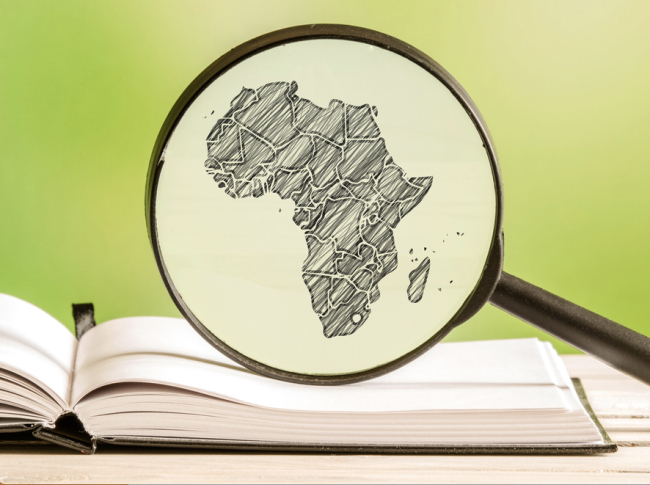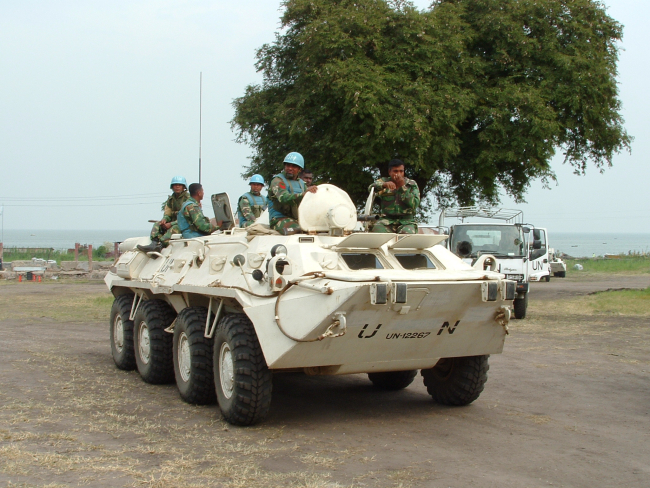South Africa and the Arab Spring: opportunities to match diplomacy goals and strategies

This paper highlights how the Arab Spring magnified a two-dimensional gap in South Africa’s foreign policy. First that South Africa does not have a vision which reconciles demands for achieving the goals of protecting human rights, sovereignty, and multilateralism; second, that its strategies do not meet set goals. The paper then provides tentative explanations to this gap. It ends by elaborating what in the “African Awakening” and in the midst of the Arab Spring are opportunities for South Africa to overcome this gap.
What the Arab Spring is remains to be fully understood; yet, its main feature, is that it encompasses a wide range of social processes that resulted in revolts against ruling regimes. Many African societies have for over thirty years been engulfed by social protest and/or anti-regime revolts – processes coined the “African Awakening”. This Awakening shares the Arab Spring’s underlying causes: economic marginality, political exclusion, and feelings of dispossession. Africa, thus, is fertile for outbreaks of region-wide militarized violence.
Negative externalities from the Arab Spring, especially the movement of combatants and arms across porous borders, and a demonstration effect that popular revolts can bring down entrenched regimes are very likely to escalate African conflicts. There is a sense of urgency because security instabilities will have a dampening effect on the economic boom which Africa is witnessing: this boom holds the potential for far-reaching positive transformations towards sustained growth and inequality eradication. Africa does not have strong regional security architectures to deal with such externalities. Expectations are high that South Africa will act in such an environment. And Pretoria taking region-wide action is actually in its own interest to help it realize its foreign policy goals.
South Africa’s foreign policy goals have been rather stable since 1994: it sees itself as a regional leader that values safeguarding the sovereignty of African states and also sees the need to achieve regional stability and peace. South Africa seeks to safeguard the norm of sovereignty from infringement, especially by more powerful states. There is also a moral dimension related to respect for human rights and popular empowerment which is very dear to a South Africa proud of its struggle against Apartheid. Strategies to achieve such goals include coordination with African states and other allies, ensuring respect for human rights and through multilateralism and institution-building which guard state sovereignty.

Available in:
Regions and themes
ISBN / ISSN
Share
Download the full analysis
This page contains only a summary of our work. If you would like to have access to all the information from our research on the subject, you can download the full version in PDF format.
South Africa and the Arab Spring: opportunities to match diplomacy goals and strategies
Related centers and programs
Discover our other research centers and programsFind out more
Discover all our analysesAnglo-Kenyan Relations (1920-2024) : Conflict, Alliance and a Redemptive Arc
This article provides an evidentiary basis for postcolonial policy in its analysis of Anglo-Kenyan relations in a decolonization era.
When City Diplomacy Meets Geopolitics: A Framework to Help Cities Navigate Geopolitical Risk
Crises and the increasing polarization of international relations make political risk analysis an indispensable resource for internationally active public and private entities.
The United Nations Mission in Congo or the exemplary uselessness of the United Nations peacekeepers
During the M23 conflict in 2012-2013 in the Democratic Republic of Congo (DRC), the United Nations (UN) took the diplomatic initiative (by initiating the Addis Ababa agreement) and the military initiative (by launching a coordinated counter-offensive with the Congolese army). Since the resurgence of this conflict in 2022, the United Nations, which still has more than 10,000 peacekeepers deployed in eastern DRC, no longer plays any role.
Rebooting Italy's Africa Policy: Making the Mattei Plan Work
Against the backdrop of increasing anti-French rhetoric across parts of Francophone Africa, the relative failure of the counterinsurgency operation in the central Sahel (Operation Barkhane) and diplomatic rifts with several Sahelian countries, Paris has been rethinking its relationship with the continent for several years now. As a former imperial power that has seen its colonial domain in Africa gain independence between 1956 (Morocco-Tunisia) and 1977 (Djibouti), France has invented two successive roles for itself in Africa since 1960, particularly in French-speaking sub-Saharan Africa.








